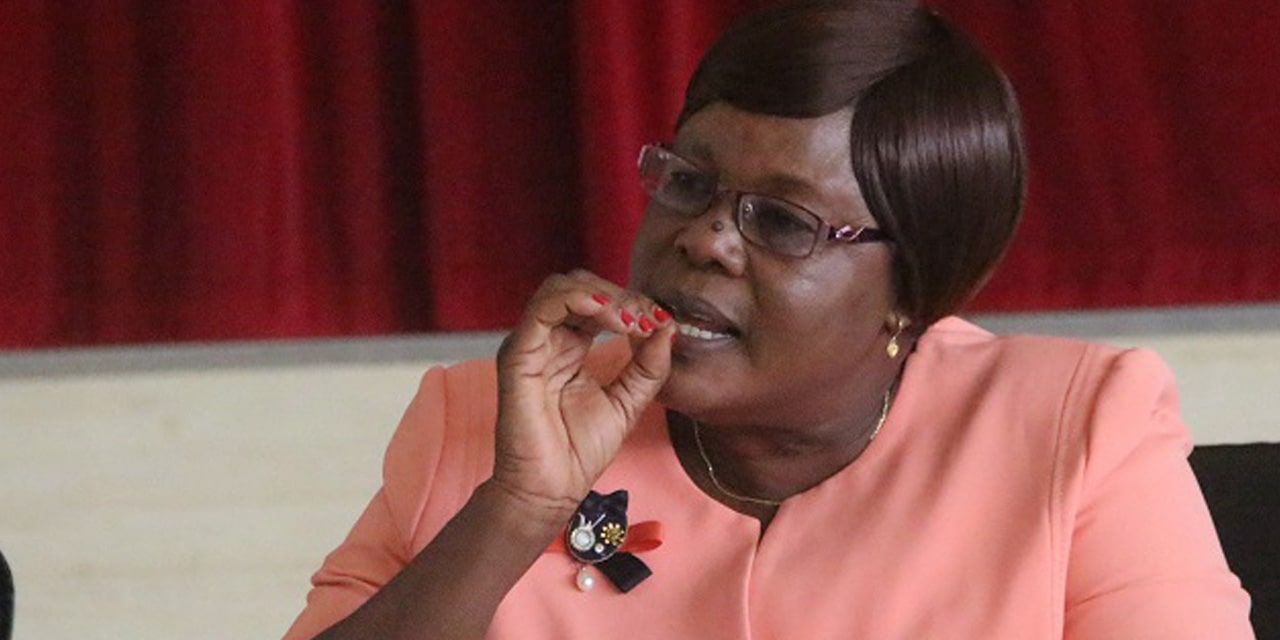Clifton Movirongo
The Minister of Gender Equality, Poverty Eradication and Social Welfare Doreen Sioka, has proposed that a “prison island” be build where sexual offenders can be housed, as she also suggests depriving offenders of any ‘contact with their family members’.
Sioka’s statement comes amid a countrywide surge in rape cases involving minor children and women, human trafficking and Gender Based Violence (GBV).
“On the issue of rape, a lot of people are calling for surgical castration of men and that is something I cannot support even if it is happening in other countries. That is very inhumane and I think another step should be taken, like constructing a prison on an island in the middle of nowhere where there will be no communication at all with their family members. I do not support death penalty either,” Sioka told the Windhoek Observer.
Other suggestions by the minister include the provision of counselling, availability of social workers, a tight security and a hospital on the “prison island”, in order to rehabilitate the sexual offenders.
Quizzed if she had been in contact with President Hage Geingob over the surging rape cases, Sioka said “I’m always in contact with the President, and whenever he complains I listen and do something about it.” She said adding that she had spoken at length with the President over the outrage that has been happening with the recent cases.
Justice minister Yvonne Dausab said she opposes the idea of a separate prison, as she thinks there is ‘no value’ in considering it and says “it is a wholesome inquiry”.
Dausab told the Windhoek Observer that her office will have to consider what the Ministry of Justice wants to achieve with having separate prisons.
“I am not sure it has value, because then you must also think of a separate prison for people who commit murder. I think the prison system is already designed to separate serious criminals or types of crimes. I am not sure it will achieve what purpose except for enhancing stigma. We must think of crimes committed and the behaviour of people. We must be careful not to banish people to a place of hopelessness and that they have no chance of rehabilitation,” she said.
Dausab confirmed to the Windhoek Observer that the Combating of Rape Amendment Bill is due to be tabled in Parliament during the current session and has been submitted to the Attorney General and is awaiting certification.
“The kinds of crimes people commit also reflect on our collective as a society and we must interrogate that not just think about punishing people because it does not deal with the roots of where the violent behaviour is coming from. It’s a wholesome inquiry. But people must be punished for their actions,” she said.
Combating of Rape Act will increase penalties for rape with a minimum 10-year jail sentence for the first conviction from the previous five, a minimum 20-year jail term for a second conviction, up from 10 years, a minimum 25-year jail term where the rape is committed under coercive circumstances.
The sentence for statutory rape – where the victim is under 16 years of age – will be set at ten years in jail or N$40,000 fine.
Dausab also ruled-out the introduction of the death penalty.
“Namibia is a constitutional democracy. The right to life, right to human dignity and non-discrimination are our sacred rights under the bill of rights. The death penalty has no place in our society. We cannot fight violence with violence. The state must never get involved in institutionalising violence … there is no scientific evidence that the death penalty significantly reduces crime,” she said.
Regarding the establishment of the National Sexual Offences Registry, Dausab said efforts are being made to increase discussion on the matter.
“At this stage consultations with the Prosecutor General and senior officials at the Ministry clarified that the national registry was only proposed in the past to name and shame men who do not support their children. There was a proposal to consider this for sexual offences such as rape although at the time of the current amendment the registry was not firmly considered because the required wide consultations had not taken place. Also it has implications for a number of legal processes such as appeals,” she said adding that the proposal will probably bring value as a deterrent because no person would want to be labelled because of their conduct although it should go without saying that “actions have consequences”.
“So the issue of the registry is receiving attention and we will make an effort to increase the discussion widely as we think through the various issues including the effects on constitutional rights of both victims and perpetrators.”
This comes as the Popular Democratic Movement Youth League (PDMYL) leadership from the Khomas Region on Thursday called on the government to introduce a death penalty for perpetrators of GBV, rape and human trafficking in Namibia.




